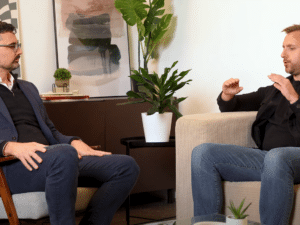Navigating Work-Life Balance, Furlough, Project Resourcing, and Industry Insights During COVID-19

Worklife balance with kids in lockdown
The COVID-19 pandemic has brought unprecedented challenges, especially for parents trying to balance work and childcare during lockdown. Many have found it nearly impossible to juggle professional responsibilities with the demands of looking after children. The emotional toll includes worry, pressure, anxiety, fear, guilt, and exhaustion, impacting both physical and mental health.
Common coping strategies include exercise, connecting with family and friends, enjoying great TV shows, and sharing humorous memes. Organisations have also played a crucial role by offering flexible working arrangements and wellbeing initiatives. Some companies have continued to pay their employees in full, while others have provided wellbeing hampers and maintained engagement through regular communication.
Dealing with being furloughed
As the UK furlough scheme ends and lockdown restrictions ease, it’s essential for organisations to consider the struggles faced by furloughed employees and plan for their reintegration. The furlough scheme affected 9.6 million individuals, many of whom experienced a lack of purpose, anxiety, and frustration.
Effective HR practices during furlough included offering training webinars, maintaining regular communication, and providing honest updates. These measures helped furloughed employees stay informed, develop their skills, and maintain a sense of team spirit. Upon returning to work, planning and regular check-ins were vital for restoring structure and purpose.
Best resources for project resourcing
The pandemic has made change a constant in business operations. Organisations must make strategic investments to recover and grow, despite budget constraints. Three main resourcing options are available for project teams: interim professionals, management consultants, and internal resources.
Interim professionals:
- Pros: Hands-on expertise, quick availability, flexible contracts, and cost-effective solutions.
- Cons: Cultural fit challenges, multiple recruitment processes, and the need for structured management.
Management consultants:
- Pros: Extensive benchmarking data, analytical power, and access to wider consultancy resources.
- Cons: Talent retention issues, potential conflicts of interest, and additional costs for implementation.
Internal resources:
- Pros: Understanding of organisational culture, existing stakeholder relationships, and cost reduction.
- Cons: Potential gaps in expertise, internal politics, and the risk of being pulled into other work.
Each option has its pros and cons, and organisations must carefully consider their specific needs, budget, and resources when choosing the best approach for their projects.

HR and HSE industry insights
Since the beginning of March, Australia, alongside the rest of the world, has been dealing with the impacts of the COVID-19 outbreak. Businesses, industries, and functions, including HR & HSE, have been learning to adapt to new ways of working. Insights from senior business development and marketing directors at leading law firms in the UK highlight the challenges and opportunities for innovation during this period.
National EHS Manager – building materials:
- Communication and wellbeing: Weekly leadership forums via Microsoft Teams, bi-weekly email updates, and regular check-ins with team members. An app with resources has been popular.
- Innovation: Increased use of Microsoft Teams and recognition of the flexibility in work locations.
- On-boarding: Recruitment is currently on hold.
HR Manager – agriculture:
- Communication and wellbeing: Listening to employees through various channels and acting with targeted communications and resources.
- Innovation: Adoption of technology and IT platforms for greater flexibility.
- On-boarding: Structured induction plans and increased 1:1 sessions, though socialisation outside immediate teams is missed.
- Hiring: Only select executive or key roles are being hired.
National Director People and Culture – disability services:
- Communication and Well-being: Daily Zoom calls for updates and questions, online catch-ups, and a mental health plan in progress.
- Innovation: Positive experiences with working from home and a focus on business continuity.
- On-boarding: Implementing PageUp (ATS) and working with Australia Post for easier, paperless onboarding.
- Hiring: Continuing to hire for frontline operational roles, with increased recruitment in preparation for potential COVID-19 cases.
Additional HR and HSE industry insights
As the economic shutdown brought on by COVID-19-related restrictions hit Australia, business leaders needed to assess and immediately activate their business continuity plans. Leaders faced unique and rapidly changing challenges, such as ensuring employees were set up to work from home with the right equipment and support.
Group Talent Manager – global telecommunications infrastructure:
- Communication and wellbeing: Regular group communications, a dedicated Yammer channel, and scheduled Q&A sessions. A beefed-up wellbeing program with ‘Champions’ driving initiatives.
- Innovation: Broader adoption of Yammer and increased acceptance of working from home.
- On-boarding: Limited hires with remote setup instructions and virtual onboarding sessions.
- Hiring: Only roles related to key client projects.
HR Business Partner – Global Healthcare Company:
- Communication and Well-being: Weekly webinars with leadership updates, energy for performance programs, and promoting WorkPlace groups.
- Innovation: Accelerated use of digital tools and introduction of no-meeting Wednesday afternoons.
- On-boarding: No onboarding since COVID-19 hit.
- Hiring: Case-by-case basis, with no critical roles currently being recruited.
HR Director – professional healthcare products and services:
- Communication and wellbeing: Weekly updates and guides for managers and employees.
- Innovation: Functioning without everyone in the same room and more online customer training.
- On-boarding: Existing systems used, but face-to-face contact remains a challenge.
- Hiring: Recruitment on hold.

New era of modern working
With recruitment volumes lower than usual, HR leaders across the German FSPS sector have been gauging market sentiment and conducting virtual networking to understand the post-COVID working environment. Key themes include:
Return to work:
- Phased return to work with a balanced working arrangement that includes home office allowance.
- Careful planning for 2020 and beyond to ensure a smooth transition.
Mental health and wellbeing:
- Monitoring mental health and wellbeing on a remote basis is challenging.
- Use of external specialists to help employees with psychological, physical, or other issues.
- Firms must focus on inclusive and acceptable ways to address mental health needs.
Diversity:
- Renewed focus on diversity, especially in light of BLM protests and gender diversity challenges.
- Ensuring that the pandemic does not undo progress made in diversity initiatives.
The most important tool in HR’s arsenal is a professional network working together to navigate these challenges and support each other.
Legal and tax implications for businesses
Over the last 12 months, the focus has shifted from immediate health and safety challenges to more complex legal and tax issues. Key topics include:
Flexible working arrangements:
- Associated risks and challenges of flexible working.
Public health orders:
- Returning from home to the traditional workplace.
Vaccinations:
- Maintaining a COVID-19 free workplace.
Tax risks:
- Ex-pat worker relocations, job keeper audits, claw-backs, and related tax risks including superannuation, payroll tax, FBT, and PAYG.

Transformation of corporate culture in the post-pandemic workplace
When many companies had to suddenly move to remote working, maintaining corporate culture became a significant challenge. The pandemic had tremendous and swift effects on workplace culture, upending the concept of the physical workplace and corporate interactions. Modern collaborative technologies such as videoconferencing and smartphone chat groups became the norm, making face-to-face interactions less necessary.
Corporate culture is crucial for employee loyalty and trust, affecting happiness, motivation, and productivity. During the pandemic, many companies struggled to maintain morale and culture, but some found that their culture improved, with employees feeling more connected and loyal.
As employees return to the office, businesses are adapting their work processes and environments to account for social distancing. Leaders must consider how their culture will help them navigate the new reality and develop strategies that create a more collaborative, flexible, and inclusive environment.
Agility:
- The future of work now looks different, with a combination of remote and on-site working. Work will be measured by outcome rather than input, and hybrid work offers structure, sociability, independence, and flexibility.
Innovation and digital transformation:
- Technology usage has taken on new meaning, with companies adopting digital transformation to stay connected and productive. This includes new ways to manage and assess performance, give feedback, and recruit and onboard staff.
Leadership visibility and approachability:
- The pandemic forced senior leaders to increase their visibility and approachability, resulting in more meaningful relationships between employers and employees.
The COVID-19 crisis has accelerated trends and triggered new ones, forcing leaders to re-evaluate their businesses and innovate. This has led to a more agile, innovative, and digitally transformed workplace culture.
While reshaping company culture post-pandemic may be challenging, it is an opportunity for leaders to connect with and build their teams, creating a better and more cohesive corporate culture.
Virtual RoundTable: “How COVID-19 is Reshaping Engagement & Culture”
The COVID-19 pandemic has profoundly changed corporate culture, and its impact will likely be long-lasting. Employee safety, stability, and security became top priorities, and remote working became the norm. Efficient technology, communication, and collaboration have become essential.
Key Takeaways from the Virtual RoundTable:
Adapting Talent Development:
- Upskilling employees during business slowdowns can instil confidence and address skill gaps.
- Shifting to virtual environments for training and development using platforms like Zoom and Teams.
- Focusing on core business building blocks and internal
Virtual RoundTable: “Imagining the New Normal – Work Life after COVID-19”
There is no doubt that the COVID-19 pandemic has changed life as we know it. Every business leader’s assumptions, strategic plans, and visions for their companies’ futures have been profoundly changed, and as the virus lingers, its impact will not only affect corporate culture it will possibly change it forever. Here are our key takeaways from the event.
Hybrid Workforce Model
- Insight: The future of work is likely to involve a hybrid model, combining remote and on-site work. This approach aims to leverage the benefits of both environments.
- Implication: Companies need to ensure a cohesive culture and effective communication between remote and on-site employees to maintain productivity and engagement.
Leadership Adaptation
- Insight: The pandemic has tested leaders’ abilities to manage crises, requiring them to show empathy, calm, and optimism while being fact-based.
- Implication: Leaders must adapt to managing remote teams, focusing on outcomes rather than processes, and supporting their teams’ mental health and well-being.
Mental Health and Wellbeing
- Insight: The pandemic’s impact on mental health will extend beyond the immediate crisis, highlighting the need for ongoing support.
- Implication: Companies should equip managers to handle mental health issues and consider introducing Mental Health First Aiders to support employees.
Flexible Work Arrangements
- Insight: Long-term flexible work arrangements challenge traditional work models, with technology enabling effective remote work.
- Implication: While remote work offers many benefits, maintaining human connection and fostering creativity and innovation remain critical challenges.
Health and Safety in the Workplace
- Insight: Ensuring a safe work environment, both at home and in the office, is essential. This includes ergonomic practices and creating “Covid safe” physical workplaces.
- Implication: Companies need to provide guidance on safe home office setups and conduct risk assessments to support employees working remotely.


